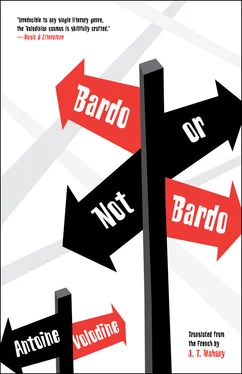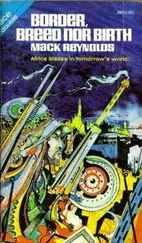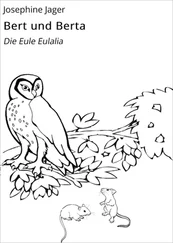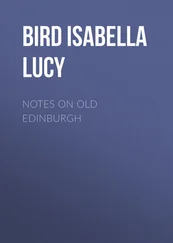The man speaking to the miners is the rescue coordinator, a vicious engineer, Kamchatkine, who has in the past butted heads with Moreno and Lougovoï over union issues. They have no respect for him, and he, from their point of view, hates them for their anarchism. The conversation with Kamchatkine goes poorly. The engineer describes the magnitude of the damage: the level where the two survivors are interred cannot be cleared for several weeks. His announcement is frank. He doesn’t understand how the phone connection is possible and how Lougovoï and Moreno could have escaped death. After a remark from Moreno, the tone escalates. Kamchatkine is only interested in the dead, not survivors, his thoughts concern counting the dead who were part of Moreno and Lougovoï’s group, his compassion goes to Yano Waldenberg, an exemplary team leader, duly noted by management, unsuspected of terrorist involvement. The exchanges are so heated that both sides want to hang up. Unable to keep his anger in check, Kamchatkine passes the receiver to Bandzo Grimm, a lama who has come to give support to the disappeared and their families.
His is the presence that makes The Coal Company an actual bardic playlet. Bandzo Grimm is a lamaist priest whose spiritual authority is hardly recognized by Lougovoï and Moreno, since neither of them has ever been a fervent practitioner of Buddhism. In their personal history there are plenty of fights with management, affiliations with support networks in armed struggle, but few hours spent in meditation in temples.
Thus Bandzo Grimm’s urgent task is to convince the two miners that they will not be ideologically diminished by listening to and following his advice. Lougovoï and Moreno enter into a peaceful dialogue with the lama. Together they talk about death. The two miners have only a fragmentary idea about what is to come after, but the notion that they will walk for forty-nine days before being reborn appeals to them. It’s comforting. Bandzo Grimm has a persuasive voice, what he says is calming. After a while, the two men feel an active sympathy for the lama. Time passes, and, to fight against their dreary idleness, they accept Bandzo Grimm’s proposition: they will help Yano Waldenberg through his first steps in the Bardo, and, while aiding Waldenberg, they will learn what is essential for leading a good life, along with the fundamentals of good behavior after death. In fact, considering that they are not dying yet and that they are in greater need of psychological assistance than religious, Bandzo Grimm is asking them to prioritize Yano Waldenberg’s well-being over their own.
There Lougovoï and Moreno are, tasked with reciting the Bardo Thödol to Yano Waldenberg, or rather, in the darkness near Waldenberg’s legs, sticking out of the sooty rock. They take turns doing it. Bandzo Grimm tells them the prayers, admonitions, exhortations, and counsels to the dead over the phone, and they repeat them. Sometimes they repeat them directly, without letting go of the receiver, with an evident lack of faith, and sometimes they feel their way over to the dead man, because they have been struck by the power and imagery of one passage or another, and they deliver the lines with gusto. They perform hesitantly at first, as something in their anarchistic convictions urges them to tomfoolery, but they don’t sabotage the text. On one hand, the text is beautiful, and on the other, they don’t want to disappoint Bandzo Grimm.
Then their feelings change.
They start to despise the solicitude with which Waldenberg must be addressed, all the pomp and circumstance rolled out just to save him. They start to grow jealous of the dead man. Waldenberg gets to walk toward illumination or rebirth, he gets to hear the warnings and explanations every dead person needs to hear so as not to tremble with fear and despair, two voices are at his side taking turns reading the Bardo Thödol to him. While they, Moreno and Lougovoï, will die far from the light, alone and afraid, with no one to remind them how stupid it is to fight and struggle to be reborn, only to die once again.
The reading of the Bardo Thödol moves into a chaotic phase. Bandzo Grimm continues dictating the sacred text to the miners, but now neither man hardly makes the effort to pass it on in the direction of Waldenberg’s corpse. Lougovoï and Moreno sit away from the telephone and remain silent, or they hold monologues or dialogues about Kamchatkine’s or Waldenberg’s spinelessness, or they ponder their fate, the fates of the privileged, of the proletariat.
They feel even more exhausted.
They cough.
Bandzo Grimm’s voice crackles in the dark. It crackles endlessly. It describes a world of absolute darkness, where every deceased person can easily cross through tremendously thick walls or any other dark obstacle.
Lougovoï and Moreno listen to this in their coal prison, they don’t light the lamp, they cough, they clear their throats, and they wait.
MISHMASH AT THE MORGUE
This setting’s cast is also limited to two actors:
Becky Glomostro, student,
Verena Lang, unemployed.
To the voices of the two actresses is added the recorded voice of a supplementary character:
Djamling Schruff, lama.
A medical student, Becky Glomostro, has night-watch duty at the Medico-Legal Institute. Her job isn’t difficult; it consists primarily of struggling to stay awake. She reads, she makes herself coffee so she won’t fall asleep, she watches the motors that keep the housed cadavers cool. For extra pay, she was also asked to take a body out of its drawer at a predetermined time and place a tape recorder near it. The family, it seems, adheres to the belief that a voice should guide the deceased through his first moments in the Bardo. The dead man happens to be a person of note, Hoïgo Iougorovski, who has just been assassinated. The recorded voice belongs to a lama reading the Bardo Thödol .
Becky Glomostro wants to break the boredom of her guard. She invites a friend, Verena Lang, to come join her. This young woman has several psychiatric issues. It turns out that she was once sexually abused by Hoïgo Iougorovski, of which Becky Glomostro is ignorant.
Verena Lang’s presence disrupts the aseptic calm of the place. Before Hoïgo Iougorovski’s cadaver, Verena Lang recounts the rape to which she was subjected, then carries out a trial against the corrupt officials who run the city. She compliments those who fill them with bullets. She starts or stops the tape against better judgment, she switches the cassettes, and she quickly subverts the reading of the Bardo Thödol . To get revenge on Hoïgo Iougorovski, she scrambles the instructions spoken to the dead man. She stands in for the lama, sometimes identifying herself so that the dead man recognizes her, sometimes mimicking the lama’s voice to give Hoïgo Iougorovski the wrong advice. In order to give rhythm to her words, she uses a lucky gong, a chrome basin meant for disposed autopsy material.
“Unnoble brother,” she says, for example, “you who are called Hoïgo Iougorovski, you are now going to meet one of the creatures you tormented with your ignoble member, with your ignoble eyes, with your ignoble riches. You are going to try to escape her, but you won’t get anywhere. You’ll panickedly run from one side to the other like a beast caught in a trap. She will approach you to make you remember your criminal existence.” (Gong.) “Ask her nothing, do not appeal to her compassion. She is not there to help you, but to punish you. You’ll try even harder to flee her, and she will stretch ever farther over you to inflict suffering upon you.” (Gong.) “In the past the temples told you that you had to become one with the frightening entities of the Bardo to gain deliverance. But they were wrong, Iougorovski. Whether you flee or look for union, your fear will be immense. Listen to me, Iougorovski. Try not to scream, hide the trembling of your flesh. You will try your best to think about something else while she assaults you and defiles your most intimate organs, but you will fail. Your pain and sorrow will be a dead end, you should know that.” (Gong.) “I am Djamling Schruff, the lama your family hired to guide you to awakening. Listen to me. You will know neither awakening, nor deliverance, nor rebirth. You are going to be confronted with the ones you crushed beneath all your weight and terrorized with your member, and whom you had the ignominy to look at while you defiled them and while you sprayed them with your sperm.” (Gong.) “You will know no rest. They will heap on you terrible reprisals, many and many times over, and, when you try to crawl out of their grasp, they will trap you again and start anew.”
Читать дальше












